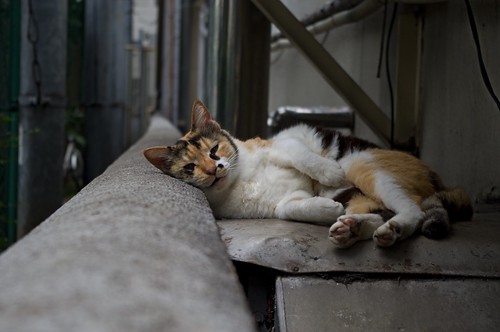I begin February with a question - obvious, yet compelling - that has been hanging over me for a while now. What exactly is a novel?
This is the 143rd word of my logophiliac adventures:
A novel is a fictional prose narrative of book length, typically representing character and action with some degree of realism. The word comes from the Italian term novella storia , for "new story." (Novella being the feminine of novello and the Latin word novellus for "new".) The word was also utilized from Middle English to the eighteenth century in the sense of "a novelty, a piece of news, from the Old French word novelle. This gives way to the adjective use of novel which means interestingly new or unusual.
But what should this "newness" look like? The novel has become an incredibly versatile literary vehicle since Daniel Defoe, Charlotte Smith and Jane Austen gave it a solid form at the end of the eighteenth century. When I first set out to create my own novels, I thought of the form as a long, extended story of someone's journey... like a good Dickensian bildungsroman (a coming of age novel like David Copperfield or Nicholas Nickleby). Since then I've realized that the newness is not just a matter of introducing and following new characters and exploring a new setting, but in the way we tell our stories: non-linear, in braided narratives, from an unusual character's point of view, in the present tense, in the second person, in an otherwise impossible situation, etc. Novels are experiments for testing new angles in story telling, and even if the story itself might be similar to something that's been read before, the telling makes it new.
Personal example. I finished a novel last year and have embarked on a sequel. Granted, there is a certain amount of uncertainty that comes with such a decision - after all, I'm waiting to hear back from agents, and there is no guarantee that any one will want to represent it, or to publish it. Whether or not it was the wise decision to go ahead with the sequel, I've found some pretty good reasons to do it.
1.) Novel #1 (let's call it W1), isn't actually finished in the sense that it has not gone through the publishing process - has not encountered agents or editors. When it is, somewhere down the line, accepted by a publishing company, there will be more changes to be made. It is simply the way the process works.
2.) At this point, not knowing what those changes will be a year, two, five or ten years from now, I know there is room for improvement. Writing the sequel (W2) will open up new doors and help me address questions that I couldn't answer (or even think to ask) about my characters in the first novel - a challenge in many ways. How?
3.) I've always wanted W2 to be it's own novel, with its own set of eccentricities, patterns and nuances - not just an expansion of W1. I decided that W2 would be from a different character's point of view. The narrative main character in W1 is a young woman (let's call her S) trying to decide whether or not to take vows in a quasi-monastic order. The narrative main character in W2 is her romantic interest, a man who at 126 years old doesn't age and has a caustic, jaded personality (let's call him D). D is going to be a challenge because his perspective is at a completely different angle from what I'm used to. In this way, learning about the inner workings of D in W2 will help me to see S in a new light (from his eyes) and apply that newness to the revisions for W1.
4.) I have ideas for a W3 and a possible W4 as well, although nothing is set in stone. If they do emerge, they will be their own novels, as well; W3 being made of journal entries from both D and S, and W4 from the point of view of a character who has not yet been born. Whether or not these ideas will ever come about, they're already bearing fruit in my daily experiments, and that fruit is in W1 and W2.
5.) There is no way to lose with this model (disorganized-jumble-of-ideas is more like it). Yes, my dreams and prayers right now are bent on getting W1 published. And though there's a chance (as with every creative endeavor) that it won't catch the attention of an agent or a publisher, the story is still mine and it is worth writing.
Worst case scenario: W1 and W2 aren't published, and I embark on a completely different project (oh yes, I have one), which is eventually published. Once established in the business, I can go back to W1 and W2, improve them and try again. It might take ten or fifteen years, but even this brood of brain children are worth that wait. It may feel like a defeat at first, but with the right amount of audacity and devotion, this can be turned into an opportunity. Look at Stephen King and the years it took to flesh out The Dark Tower and to re-release The Stand in its truest edition. (Many.) Time is not an adequate excuse to stop the experiment. If we can't be "novel" or versatile with the strange ebbs and flows of the publishing industry in addition to our own creative challenges, we might not make it. That is my theory, anyway, but a hopeful one.
Today, Sarah Callender wrote for
Writer Unboxed in a similar vein "The Writer as an Inventor," which I found to be helpful and encouraging. She emphasizes adopting the habits and mind-sets of inventors to better craft our stories through passionate curiosity, obsessive focus, loyalty to our project, to embrace a healthy balance of fear and foolishness, among other things.
As inventor-creators, we strive to answer pressing questions about ourselves... even if we don't know how to ask those questions, they're still worth striving for, reinventing and examining in new angles, through different lenses (telescope, microscope - whatever is required) until we know. It's by no means an exact science, but writing is novel... and it's our job to make sure it always will be. I think we're up for that challenge.





